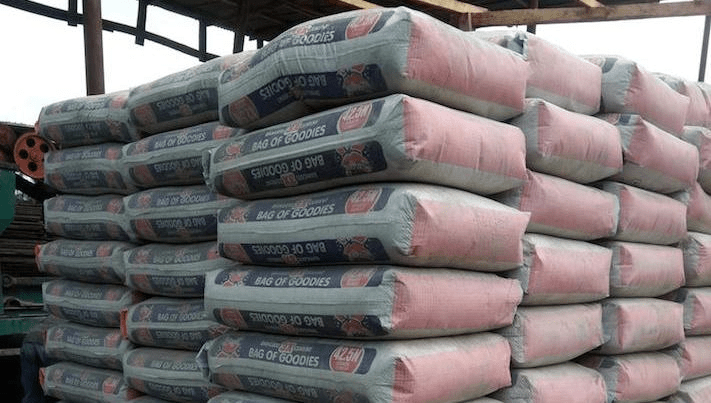Abba Hamisu Sani
Africa-Press-Nigeria The rising price of cement is increasing the cost of building development. According to a reserch the price of a 50 kg bag of cement rose from N2,500 (US$6.25/s) to N3,600 (US$9) around November last year. The Senate had in April called on the federal government to provide more industrial incentives for new entrants into the cement business to break the oligopolistic nature of the industry, boost production of cement and consequently result in lower prices. The Senate noted that the rising price of cement is impeding the ability of the government to provide the needed infrastructure to promote growth. The Nigerian cement market is dominated by three players – Dangote Cement, Lafarge Africa Plc and BUA Cement.
In the second half of 2020, we saw an appreciable increase in the retail price of a bag of cement-based on our study which showed a bag of cement was priced at c.N3300/bag from c.N2550/bag-N2700/bag in H1 2020. As of 2020, Dangote Cement in its Nigerian operations reported an 18.0% y/y increase in Revenue driven mainly by volume growth (+12.9% y/y) and minimal price growth (ex-factory price; +4.5% y/y).
The domestic volume growth was supported by continued sales promotional activities (Bag of Goodies- Season 2), improved real estate investments amid a low-interest-rate environment and resumption in construction activities following the reopening of the economy in Q3 2020. Currently, there is a huge difference in the ex-factory price of cement and the retail market price. For Dangote, the ex-factory price of cement is N2442/bag which is significantly lower than the retail market price of N4000/bag-N4200/bag.
A possible reason may be the weak infrastructure to facilitate the movement of goods resulting in increased distribution costs for distributors.
According to the Q4 and full-year 2020 GDP data released by the National Bureau of Statistics (NBS), the real estate sector returned to positive growth of 2.81% y/y in Q4 2020 following six consecutive quarters of negative growth since the last positive growth posted in Q1 2019 (0.93% y/y). The significant recovery in Q4 2020 reflected the full reopening of the economy as many residential and commercial projects began operations fully following the suspension of activities during the national lockdown. Overall, the real estate GDP FY 2020 contracted by 9.22% y/y.
Despite the Q4 recovery, we do not particularly expect strong growth from the sector due to the weak demand for capital goods amidst the increasing price of cement. According to an economist Abdullahi Gwanfmdu of Kaduna polytechnic argued that the increase is too alarming that can affect building industry, house ownership and rents this is also has a negative effect to the Nigeria masses
Nigerian consumers are still reeling under the impact of Covid-19, multiple devaluations, inflationary pressures and increasing utility cost on their finances. Thus, we expect new home acquisitions to remain less of a priority. In addition, we expect corporate demand to remain poor given that many businesses are still suffering from the impact of covid-19. This, coupled with legacy issues such as the high cost of a mortgage, land acquisition difficult bies etc. will continue to impede growth in the real estate sector. Dangote Cement is the major Producer of Cement in Nigeria and Africa.
Aliyu Da’u Aliyu who is the regional Manager Dangote Cement North West Nigeria said high demand is the reason behind the Increase of the Cement Price.
He added that Dangote Cement Company did not Increase the price of Cement as speculated by the public.







